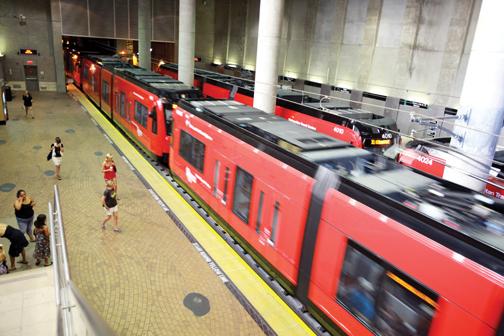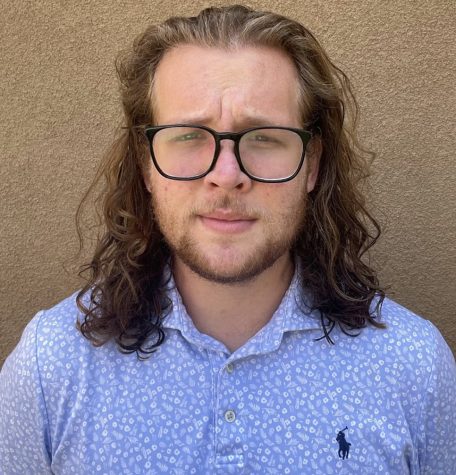
The Environmental Health Coalition, in partnership with the San Diego Transportation Equity Working Group (SDTEWG), is proposing a ballot called “Elevate SD 2020” that would include youth opportunity passes, a new purple line, 24-hour service of public transportation, and increased frequency of bus and trolley services to the City of San Diego to aid SDSU students and the environment.
The Environmental Health Coalition’s Transportation Justice department focuses on improving the San Diego Transit system in Barrio Logan, National City, City Heights and Tijuana. The purpose of this division is to “address policy issues that have historically exposed low-income communities of color to toxic air pollution and the impacts of climate change,” says Carolina Martinez, the Director of Transportation Justice at the Environmental Health Coalition.
Improving the San Diego Transit System would also help improve the environment in San Diego as “transportation is the largest source of greenhouse gas emissions,” said Carolina Martinez. “Forty-one percent of emissions in our region come from transportation.”
These emissions affect climate change and, according to the United States Environmental Protection Agency (EPA), the most severe harms of climate change fall upon underserved communities and racial and ethnic minority communities.
Elevate SD 2020 also asks for a purple line that, according to Carolina Martinez, would better connect South Bay to SDSU.
“The concept is that it would go from the border, through Chula Vista and National City, through City Heights, and at that point, it would connect with a line that services SDSU,” Carolina Martinez said. “It would operate much faster as the technology would be better than the blue line.”
The purple line would allow SDSU students commuting from Tijuana and South Bay to save time on their way to the university.
The Environmental Health Coalition hopes to provide more accessibility to transit systems that are better for the environment in the coming years. Elevate SD 2020 calls for electrifying the bus system at a faster rate to help stop the effects of climate change. SDTEWG proposes that zero-emission buses be deployed in the next two years.
Carolina Martinez said she believes lowering the emissions of transportation in the San Diego region could aid in the fight against environmental racism and the overall health of underserved communities.
The proposal also includes youth opportunity passes which are no-cost transit passes that would be available to all persons 24 years old and under in the San Diego region.
SDTEWG hopes these passes will encourage young people to use public transportation in order to ensure generations of lifelong transit riders and encourage a significant mode shift.
Management information systems (MIS) senior Marcos Valdez said he believes transportation should be more accessible for commuter students.
“Transportation shouldn’t be what holds students back from higher education,” said Valdez. “A more cost-efficient transportation would help thousands of students.”
The improvement of accessibility to reliable transportation is a goal of the Environmental Health Coalition as “12% of low-income residents don’t have access to transportation transit systems,” said Carolina Martinez.
Psychology freshman Lauren Magliocco believes transportation should be available to all students who are in need.
“It’s really important, especially for commuter students and for students who can’t afford a car to have reliable transportation,” Magliocco said.








